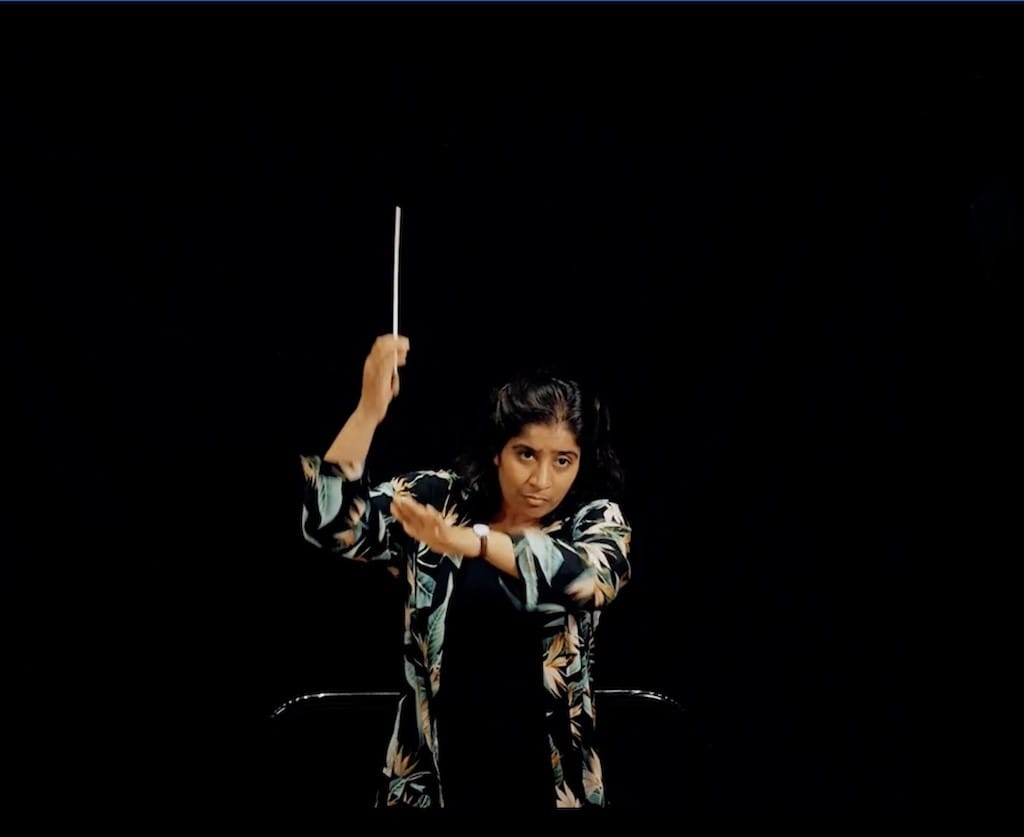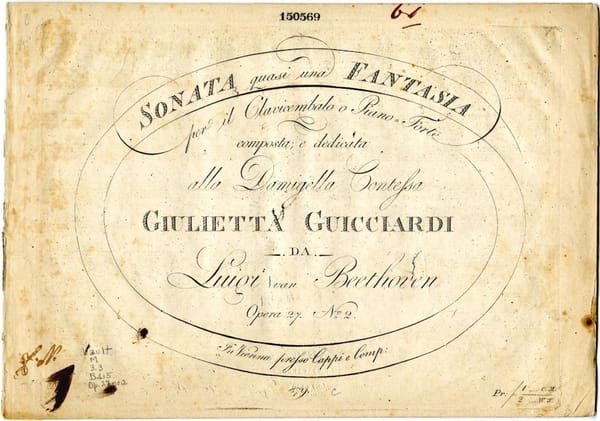Maria Badstue: A Musical Journey Connecting Denmark and India

Ahead of her performance with pianist Christina Bjørkøe and the SOI Chamber Orchestra, the India-born Danish conductor Maria Badstue talks to ON Stage about her connection with India and the upcoming concert, while reflecting on her musical journey and mentors.
Danish conductor Maria Badstue has been celebrated for her intuitiveness, versatility and communicative abilities in Europe for several years now. Naturally, it wasn’t long until the rest of the world learned of the talent and passion of this young conductor of Indian origin. Born in the village of Pandharpur in Maharashtra, she was adopted at five months by her Danish parents and brought up in the small town of Thisted, Denmark. Steeped in classical music from an early age, Badstue, a professional trumpeter, was mentored by acclaimed conductors like Jorma Panula and Marin Alsop. Winning the special prize in the Lovro von Matatic Competition in 2011, she soon went on to become one of the most popular young conductors, working with notable orchestras of the Nordic world.
An exponent of opera, Badstue has conducted productions like Vanessa by Samuel Barber in Neubrandenburg, Don Quixote by Massenet in Stockholm and contemporary operas like Thumbprint by Kamala Sankaram in Portland, among others. And, in 2017, her passion for the operatic field brought her closer to her country of birth when she was invited to conduct II Matrimonio Sagreto in Mumbai. As a proponent of music education, she has been engaged in two remarkable initiatives to promote classical music. Badstue is the founding director of Nordic Masterclass for Conductors, a sought-after masterclass in Europe, in collaboration with Jorma Panula and the South Denmark Philharmonic. Her association with the INDK Symphonic Collaboration, an initiative of cultural cooperation between India and Denmark, is commendable, despite the programme’s postponement during the 2020 lockdown.
Excerpts from the interview:
ON Stage: Could you give us a peek into your musical journey?
Maria Badstue: My parents tell me that since I was about two to three years old, I would often sit in front of their big speakers in the living room listening to all kinds of music, especially classical. At eight, I started playing in the brass band for the local scout organisation FDF, that organises brass bands across Denmark. I played the cornet and later the trumpet. When I was around 14 or 15, I conducted a brass band for the first time; it was my first introduction to standing in front of an orchestra. At 19, I moved to a bigger city for a preparation course for the entrance test for the Danish National Academy of Music. Here, I studied the trumpet and met my first conducting teacher, music director of the Danish Chamber Players. He was so kind to give me a chance to conduct the ensemble in concert. This was my first meeting with a professional orchestra, and it made a deep impression on me.
OS: You were mentored by Finnish conductor Jorma Panula. What were your takeaways from this period?
MB: Jorma Panula, first and foremost, encouraged me and believed in me. He is a world-famous teacher, and I was so proud and motivated that he took serious interest in me and my development. He invited me to all kinds of courses and masterclasses, especially in Finland but also throughout Europe. He is an amazing teacher, and I learned so much from him—about the music, how to study and study fast and, especially, the psychology of working with many people. He taught us to respect the orchestra and always be prepared. He is a master of teaching people how to self-study. He does not give specific rules to do it, but really encourages what you have, as everyone comes from different backgrounds.
OS: You visited India in 2017 for the first time since your birth to conduct the opera Il Matrimonio Segreto. Tell us more about your memories of the show.
MB: It was very special to visit India. Honestly, the most special thing was that everyone around me was ‘brown’. I had never experienced that and it was a very special emotional experience for me. I will never forget that feeling of getting off the plane for the first time in Mumbai. I was very touched and cried a bit actually. Mumbai is a wild city and, to people who grew up in Europe, pretty chaotic! And then, in the middle of all the chaos with the traffic, we find the atmospheric Royal Opera House of Mumbai. We had a great show there and I hope to go back there some day.
OS: In retrospect, what was this homecoming like for you?
MB: What was really interesting was that I, before I had been in India, thought that people here would be very different from the Danes; but human character is the same all over the world. I’ve always loved to watch people and study their character—perhaps a bit like actors do. I met many nice people in Mumbai and it is really special to work with so many brown people around you. I did not expect that this would affect me the way it did, but it was a nice feeling.
OS: Tell us more about your role as Artistic Director and Founder of the Nordic Masterclass for Conductors founded in collaboration with your mentor.
MB: When I studied conducting with Jorma, I visited so many of his masterclasses all over Europe. In Denmark, we did not have such kind of masterclasses that enable the students to meet a real professional orchestra. I knew from my own experience how much this is needed for young conductors to develop. So, I founded the Nordic Masterclass to provide these opportunities. This season we have our 10th anniversary. I am proud of the initiative that attracts around 100 applicants every year and has established itself as one of the most prestigious masterclasses in Europe for conductors.
OS: Who are some of the composers you find yourself going back to from time to time?
MB: I always somehow go back to the symphonies of Beethoven and Haydn when I need to clear my mind music-wise. I could study the scores by Beethoven for the rest of my life and still find them enriching. Opening a score by Beethoven always gives me a fresh insight into the other works I am studying or performing at the time. If I went to a deserted island, I would definitely bring the scores of Beethoven’s symphonies.
OS: Your thoughts on the journey as a woman who conducts?
MB: I believe that nowadays opera houses and symphony orchestras worldwide are more seriously committed to casting a broader variety of artistes in principal roles and positions like soloists, singers and conductors. There are more female conductors who are qualified to be cast for bigger stages than there have been in the past.
I do believe there are people in the industry who want to change the narrative and open up and invite all talent to create a space where a more diverse pool of people, including the performers and the audience, can feel at home and included. And I think this is needed simply to make classical orchestral music and our wonderful repertoire relevant even 200 years from now. One of the most important things to have happened in my lifetime in the music industry is that globally we have started to have these important and much-needed conversations.
OS: What can you tell us about the programme for the evening of 28th July at the NCPA?
MB: I love Sibelius and Beethoven and I cannot wait to present this repertoire to the Mumbai audience. I also very much look forward to reuniting with the great and sweet musicians of the SOI Chamber Orchestra. I’ve wanted to perform the Battalia by Heinrich Biber for a long time. This will be paired with two melancholic pieces for strings by Sibelius that I love. Then, we have the momentous third piano concerto by Beethoven. We’ll also bring surprises that I cannot speak about yet.
OS: Have you collaborated with Christina Bjørkøe in the past?
MB: When I was still a student some 15 years ago at the Danish National Academy of Music, one of Bjørkøe’s piano students asked if I wanted to conduct the Ravel Piano Concerto for her final exam. Bjørkøe, already a famous and well-established pianist, was teaching us and giving advice. I was honoured when she said that she’d love to play with me some day. Of course, I was so sad when our performances were cancelled in Mumbai in 2020 due to the lockdown. But here we are! Fifteen years after we met at the Danish National Academy, we will finally perform together for the first time, and I am looking forward to it very much.
Maria Badstue will perform with the SOI Chamber Orchestra and pianist Christina Bjørkøe on 28th July at the Tata Theatre.
By Beverly Pereira. This piece was originally published by the National Centre for the Performing Arts, Mumbai, in the July 2023 issue of ON Stage – their monthly arts magazine.





